
Geotechnica's conference has a sterling reputation for delivering insightful, relevant and through-provoking content that has challenged, educated and hopefully inspired attendees across it's ten-year lifespan. Many topics have been discussed and debated at Geotechnica, from health and safety legislation, AGS data efficiency, Eurocode 7 implementation and results from industry-wide surveys.
However, in 2018, the focus is on the future. This is both in terms of upcoming or ongoing UK infrastructure projects, but also the literal future of the geotechnical industry, in the form of up-and-coming geotechnical engineers who are going to shape the direction of the industry for the next generation. This year the conference will discuss projects whose ground investigation contracts will form the backbone of the industry for years to come, whilst also giving a platform to younger engineers to discuss fresh ideas, new approaches and areas of concern for the ever-expanding and evolving geotechnical industry.
If you would like to be part of these discussions and hear what major infrastructure projects are upcoming, and what the future leaders of the industry have to say, then register to visit Geotechnica for free here.
10:30 - 11:15
Nick Sartain Head of Geotechnics, HS2 Ltd
Presentation Title: HS2 Ground Investigations - Review of progress and look to the future
11:15 - 12:00
Ben Gilson Senior Geotechnical Engineer / GE Awards Shortlist 2018, Arup
Presentation Title: Understanding the ground - from empiricism and learning by failure to artificial intelligence. Where are we, and where should we be heading?
13:30 - 14:15
Jane Collins Associate Director, Arup
Presentation Title: Geotechnics of major infrastructure – a practitioner's view
14:15 - 15:00
Francesc Mirada Geotechnical Engineer / Cooling Prize Winner 2017, Arup
Presentation Title: Paradigm Shift - Digital Revolution and Geotechnical Asset Management
10:30 - 11:15
Dr Tom Dijkstra Engineering Geologist, Loughborough University & iSMART Project
Presentation Title: iSMART Project - Understanding Earthwork Material across UK Highways
11:15 - 12:00
Gemma Sheils Geotechnical Engineer, Buro Happold
Presentation Title: Foundation Resuse - Hidden Potential and New Approaches
12:00 - 12:45
Giannis Kallika Geotechnical Engineer / GE Awards Shortlist 2018, Aecom
Presentation Title: The 21st Century Geotechnical Engineer
Geotechnica will offer the opportunity for attendees to hear from individuals representing organisations involved in some of the UK's more significant infrastructure projects.
We will take a glimpse into the future and discuss which sectors will be seeing most investment during these projects, a look at some of the challenges as they relate to ground engineering and some of the solutions we as an industry can/should offer.
These conference talks will present a unique opportunity for geotechnical contractors and consultants to hear directly from those responsible for the continuing development of large UK-based infrastructure projects.
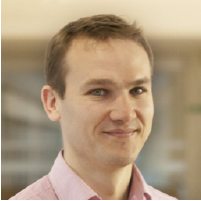
Nick Sartain
Head of Geotechnics,
HS2 Ltd
Presentation Title:
HS2 Ground Investigations: Review of progress and look to the future
This presentation will look back over the Phase 1 (London to Birmingham) ground investigation which was undertaken in-house by HS2, and will discuss some of the lessons learnt. It will look forward at the investigations planned for the detailed design of Phase 1 and for the preliminary design of Phase 2, considering both the technical and practical issues that lie ahead.
Nick Sartain is the Head of Geotechnical Engineering at HS2 where he is responsible for the specification, integration and assurance of geotechnical workstreams on the project. He has 20 years of experience in geotechnical design including earthworks, foundations, slope engineering, seismic engineering and geotechnical risk assessment. Nick has published a number of technical papers, was a principal author of the ICE's Specification for Piling and Embedded Retaining Walls 3rd Edition and is the deputy editor of the ICE's Geotechnical Engineering Journal.
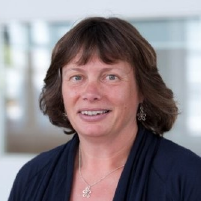
Jane Collins
Associate Director,
Arup
Presentation Title:
Geotechnics of major infrastructure – a practitioner's view
What makes infrastructure special? What is changing in how we deliver infrastructure projects? What are the challenges for geotechnical engineers? This presentation will examine the opportunities and the challenges that major infrastructure projects bring. Jane will share personal views on how geotechnical engineers can develop solutions and embrace the opportunities to showcase their skills and ability to effectively manage ground risks.
Jane leads the Geotechnics team in Arup North West and Yorkshire. Jane's early career was largely devoted to investigating sites and developing design solutions for foundations and retaining walls for building projects. In the late 1990's she started to transfer these skills to major infrastructure projects, initially on flood defence schemes, but this was soon followed by a long term secondment to the Highways Agency as a geotechnical advisor. This experience of life as a client has been invaluable for Jane's understanding of issues relating to managing geotechnical risks on infrastructure projects. In the last 10 years Jane has applied her wealth of geotechnical skills and knowledge to rail projects and she currently leads the geotechnical design input to the Transpennine Rail Upgrade (West of Leeds).
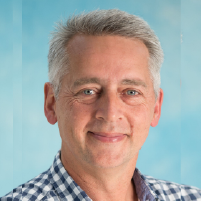
Dr Tom Dijkstra
Engineering Geologist,
Loughborough University & iSMART Project
Presentation Title:
iSMART Project: Understanding Earthwork Material across UK Highways
The UK's transport infrastructure networks are among the most heavily used in the world. The performance of these networks is critically dependent on the performance of cutting and embankment slopes which make up £20B of the £60B asset value of major highway infrastructure alone. The rail network is also one of the oldest in the world: many of the supporting earthwork cutting and embankment slopes are suffering high incidents of instability (increasing with time). The iSMART consortium, comprising the Universities of Newcastle, Loughborough, Durham, Southampton, Bath, Leeds, Queen's Belfast and the British Geological Survey, carried out a research programme to develop a fundamental understanding of earthwork material and system behaviour, through the systematic integration of research across a range of spatial and temporal scales. Spatially these range from microscopic studies of soil fabric, through elemental materials behaviour to whole slope modelling and monitoring and scaling up to transport networks. Temporally, historical and current weather event sequences have been used to understand and model soil deterioration processes, and climate change scenarios have been applied to examine their potential effects on slope performance in futures up to and including the 2080s. The outputs of this research are being mapped onto the different spatial and temporal scales of infrastructure slope asset management to inform the design of new slopes through to changing the way in which investment is made into aging assets. The aim ultimately is to help create a more reliable, cost effective, safer and resilient transport system
Tom Dijkstra is an engineering geologist and works in the School of Architecture, Building and Civil Engineering at Loughborough University. He studied at Utrecht University (NL) in Physical Geography with Geomorphology, Quaternary Geology and Soil Science as specialisations. He completed his PhD on landslide mechanisms in Chinese loess. The skills acquired led to a transfer towards geotechnical engineering/engineering geology and academic posts in both geography and civil engineering departments with research focusing on slope instability analyses in natural and engineered slopes in a context of ongoing climate change. For the past 28 years he has worked in the UK as this gives him better access to unstable slopes than in the Netherlands. He has extensive field experience in mapping, landscape interpretation and slope stability assessments throughout Europe and Asia, in particular in China. Tom managed the multi-disciplinary UK climate impact forecasting for slopes network (CLIFFS) and contributed to a series of linked research projects that include the EPSRC-funded FUTURENET (establishing a modelling architecture to assess transport infrastructure resilience as it is exposed to multi (geo) hazards in a changing climate) and iSMART projects (understanding the materials and soil-water-vegetation behaviour of transport infrastructure slopes in a changing climate).
Providing the next generation of geotechnical practitioners a platform to share their views and ideas to the wider geotechnical community is overdue. Experience and wisdom may be crucial tools in the continued growth and development of the industry, however enthusiasm, fresh thinking and innovation are the driving force.
Attendees at this year's conference will be able to hear from some rising stars and future leaders within the UK geotechnical industry that have proven their desire and passion for geotechnics, and want to share their drive with visitors to Geotechnica 2018.
Gaining a fresh, new perspective on the state of the industry, these aspirational geotechnical engineers will provide their take on where they see the industry going in the next few years.
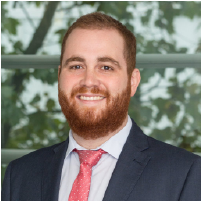
Francesc Mirada
Geotechnical Engineer / Cooling Prize Winner 2017,
Arup
Presentation Title:
Paradigm Shift: Digital Revolution and Geotechnical Asset Management
The geotechnical, engineering and construction industries all have storied histories, however how much has changed within the last 20 years? A lot of the basic principles and practices used today are largely still the same, only the methods of how we tackle the problems have changed. But now, with the digital revolution (IA and ML) we are probably facing a paradigm shift in the civil engineering industry and even more pronounced in the geotechncial sector. Data is going to be driving most of this change, how we acquire it and how we manage it. This presentation will discuss this issue, as well as briefly touching on how Arup are already doing a lot of work in geotechnical assets management (i.e. automatic condition surveys with photogrammetry and algorithms to trace change detection of tunnels, walls, dams, etc), routinisation of design processes (so-called automatization), etc.
Francesc is a Geotechnical Engineer within the Infrastructure London Group (ILG) of Arup. Since joining Arup as a graduate, he dedicated most of his time working in large infrastructure projects gaining experience in geotechnical modelling, design and analysis. He is currently working with the main civil engineering works contractor SCS JV for HS2 Phase 1 as part of the Design House geotechnical team. He has also been leading the Automation and Digital Exploring for ILG from the Arup's Early Career Group perspective.
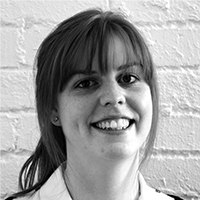
Gemma Sheils
Geotechnical Engineer,
Buro Happold
Presentation Title:
Foundation Resuse: Hidden Potential and New Approaches
As urban sites are becoming more developed, the reuse of foundations is becoming a necessity rather than an option. Reuse of foundations is not a new concept, but it has been hindered in recent times by new, taller and heavier structures being developed, which means reuse is more often than not considered unviable. Structures will always continue to push boundaries and develop in ways that we cannot predict, and geotechnical engineers have a responsibility to manage the ground in a way that encourages and enables this and increasingly in a more sustainable way.
Designers have a duty to promote an attitude of foundation reuse amongst both design and client teams. However, it is not all about foundations that are already in the ground; we should also be considering the possibility and potential for reuse in the future when designing our new foundations given the often much shorter building life spans we observe these days. The industry as a whole needs to work together to develop new construction techniques and foundations that enable the possibility of reuse and explore different ways of enhancing capacities beyond simply increasing the size (for both piles and pads).
This presentation is going to explore the potentials for reuse (including recently adopted investigation techniques for verifying historic foundations), through to new technologies that are being developed to encourage a general thought process on how we can develop the industry further.
Gemma Sheils is a Geotechnical Engineer with over three years of experience on several small and large-scale construction projects. Gemma joined BuroHappold Engineering in August 2014 as a graduate engineer after completing a Masters in Civil Engineering. She has been involved in several large projects including Battersea Power Station Phases 1 and 2, KAFD Metro Station in Riyadh, and led projects such as University of Southampton Block D/G (the final phase of the redeveloped Boldrewood campus). She has gained a wide range of experience from interpreting ground investigation data and producing ground investigation specifications, through to developing foundation solutions, which have included reusing existing foundations and designing large diameter deep piles. Gemma is currently working towards her chartership with the Institute of Civil Engineers (ICE) and is a member of the British Geological Association (BGA).
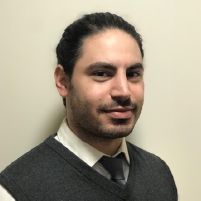
Giannis Kallika
Geotechnical Engineer / GE Awards Shortlist 2018,
Aecom
Presentation Title:
The 21st Century Geotechnical Engineer
The beginning of the 21st Century brought a number of changes to the way engineers work and consider in their designs. Giannis will explore and present the skills that in his opinion are the must haves for future geotechnical engineers. Furthermore, Giannis will present technological innovations/improvements which will most influence the way we design and execute geotechnical solutions.
Giannis is a geotechnical engineer working in the Ground Engineering team in the Birmingham office of engineering consultant and fully integrated infrastructure services firm AECOM. As a Senior Assistant Geotechnical Engineer, Giannis has been involved in various aspects of design work which include developing ground models, data interpretation, design of deep and shallow foundations, reinforced soil design, ground improvement (vibro stone column) design, settlement analysis and building damage assessment, slope stability analysis, retaining wall analysis as well as undertaking finite element analysis of complex technical problems. Giannis's practical and theoretical engineering experience enabled him to work on high profile projects such Crossrail, Hinkley Point C, Limassol New Port in Cyprus, Brent Cross, Shieldhall Tunnel in Glasgow and Mersey Gateway as well as supervising smaller scale projects involving piling works and ground investigation. Giannis is currently working on the A303 Stonehenge road tunnel as Interface Manager which is allowing him to expend his skills beyond pure geotechnical engineering. He is responsible for various management activities for Development Consent Order (DCO), Stakeholders, DBFM and Lands work streams. Tasks include issue of early warnings, payment invoices, compensation events, review of budget and programme, review of the weekly progress report and assisting the work stream leads with any other contractual or managerial issues.
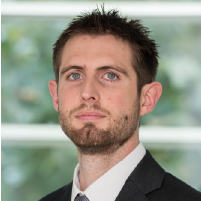
Ben Gilson
Senior Geotechnical Engineer / GE Awards Shortlist 2018,
Arup
Presentation Title:
Understanding the ground: from empiricism and learning by failure to artificial intelligence. Where are we, and where should we be heading?
Driving digital innovation in ground engineering is a hotly debated topic, and rightly so. But what progress is being made? Based on his experience on major UK infrastructure projects and private sector building and energy projects, Ben will explore how an industry founded on empiricism and case studies can embrace digital change to be fit for the future to support a competitive, productive and relevant UK plc and remain a world class engineering sector. Focussing on ground investigation, ground modelling, geotechnical analysis and construction monitoring, Ben aims to open up a debate on the all encompassing geotechnical model - what are we aiming for and what should we be aiming for?
Ben is a Senior Engineer in Arup's London Geotechnics group. Throughout his experience in infrastructure, building and energy projects Ben has promoted the use of digital tools to transform traditional ways of working. As London representative of Arup's Digital Task Force he is using his current role as lead geotechnical engineer on Arup's Crossrail 2 contracts, and other projects, to explore ways to seek to implement digital and technological innovation. Ben's experience includes deep basement design, earthworks, ground movement assessments, ground investigation delivery and interpretation, geological reconnaissance, seismic studies, foundation design, slope stability, from initial optioneering studies to detailed design and construction supervision. Key recent and ongoing projects include the redevelopment of Euston Station for HS2 and Network Rail, Earls Court Village, Wylfa Newydd Nuclear Station, UK energy from waste plants, UK data centres, London developments, Thames Tideway, York Potash, Crossrail 1 and Crossrail 2.